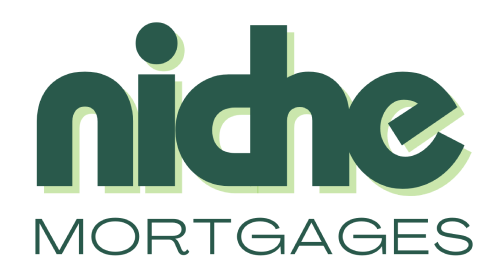When financing your business, choosing the right type of funding can significantly impact your success. Two popular options for small business owners are small business mortgages and business lines of credit. While both provide access to the capital needed to grow, they serve very different purposes. Understanding their key features, benefits, and limitations can help you determine which is the best fit for your needs.
What is a Small Business Mortgage?
A small business mortgage is a loan specifically designed for purchasing, refinancing, or developing commercial property. Whether you’re looking to buy office space, a retail storefront, or an industrial facility, a small business mortgage can provide the long-term funding needed for such investments.
- Secured Loan: The property serves as collateral.
- Fixed or Variable Interest Rates: Rates may remain constant or adjust based on market conditions.
- Long-Term Financing: Typically repaid over 10 to 25 years.
Best For:
- Business owners looking to purchase or invest in commercial real estate.
- Entrepreneurs who want to build equity through property ownership.
- Companies seeking to expand with a permanent physical location.
What is a Business Line of Credit?
A business line of credit provides flexible, revolving access to funds that you can draw from as needed. Unlike a loan, you only pay interest on the amount you use, and once repaid, the credit becomes available again. It’s an ideal tool for managing short-term cash flow or covering unexpected expenses.
- Revolving Credit: Borrow and repay as needed within a set limit.
- Short-Term Funding: Ideal for addressing immediate financial needs.
- Variable Interest Rates: Interest rates often fluctuate with market trends.
Best For:
- Businesses with fluctuating cash flow or seasonal needs.
- Covering inventory, payroll, or operational expenses.
- Financing smaller, recurring costs rather than large one-time purchases.
Pros and Cons
Small business mortgages and business lines of credit each have distinct advantages and drawbacks. A small business mortgage allows you to build equity in property ownership while benefiting from lower interest rates compared to other business loans. Additionally, fixed monthly payments provide predictability, making it easier to manage long-term financial planning. However, these mortgages require a substantial down payment, are limited to real estate-related expenses, and involve a long-term commitment that can tie up funds.
On the other hand, a business line of credit offers flexible, revolving access to funds, ensuring you only pay interest on the amount used, with no restrictions on how the funds are spent. Despite these advantages, business lines of credit often come with higher interest rates, especially for unsecured options, and require strong credit and financial stability to qualify. Furthermore, they carry the risk of overborrowing, which can lead to financial strain if not managed carefully. Understanding these pros and cons can help you choose the option that best aligns with your business goals and financial strategy.
Choosing the Right Option for Your Business
When to Choose a Small Business Mortgage
If your goal is to establish a permanent presence for your business or invest in property, a small business mortgage is the better option. It offers stability, builds equity, and can help grow the value of your business over time.
When to Choose a Business Line of Credit
If you need quick, flexible access to funds for short-term expenses, a business line of credit is ideal. It’s particularly useful for managing cash flow, covering inventory, or addressing unexpected financial gaps.
For some businesses, combining both options can provide the best of both worlds: a small business mortgage for long-term stability and a line of credit for day-to-day flexibility.
Need Help Deciding For Your Business?
A small business mortgage is ideal for long-term investments in commercial property, offering lower interest rates and equity building. A business line of credit provides flexible, short-term funding to manage cash flow or unexpected expenses. Choosing the right option depends on your business goals and financial needs.
Whether you’re looking to purchase property or need flexible access to capital, Contact Niche Mortgages today. Our experts can guide you through your options and help you secure the best funding solution for your business growth!
About the Author

Jonathan Yien
Jonathan Yien is a seasoned mortgage broker at DLC Clear Trust Mortgages with a rich background in financial advising from his time at TD Canada Trust. He is dedicated to helping clients achieve their financial and homeownership goals.

